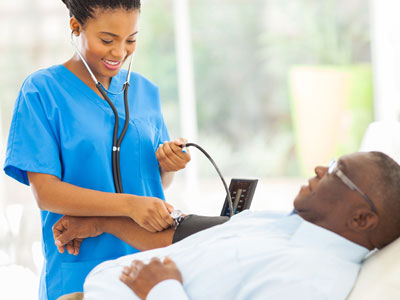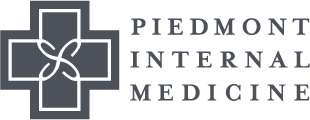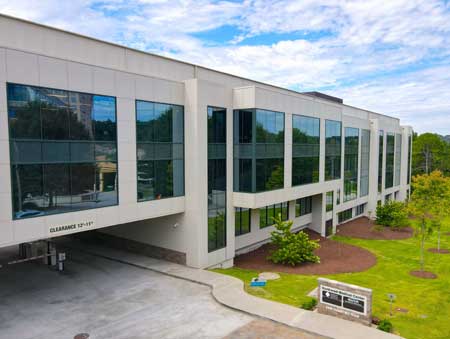Hypertension Management

More than 1 in 3 adults in the U.S. has high blood pressure, or hypertension. Many of those people don't know they have it, because there are usually no warning signs. The good news is that our physicians and staff at Piedmont Internal Medicine can work with you to prevent or treat high blood pressure.
What is blood pressure?
Blood pressure is the force of your blood pushing against the walls of your arteries. Each time your heart beats, it pumps blood into the arteries. Your blood pressure is highest when your heart beats, pumping the blood. This is called systolic pressure. When your heart is at rest, between beats, your blood pressure falls. This is called diastolic pressure.
Your blood pressure reading uses these two numbers. Usually the systolic number comes before or above the diastolic number. For example, 120/80 means a systolic of 120 and a diastolic of 80.
How is high blood pressure diagnosed?
High blood pressure usually has no symptoms. We reccomend regular blood pressure checks here at Piedmont Internal Medicine. Your provider will use a gauge, a stethoscope or electronic sensor, and a blood pressure cuff. He or she will take two or more readings at separate appointments before making a diagnosis.
You have high blood pressure if your readings show that
- Your systolic is 140 or higher OR
- Your diastolic is 90 or higher
Blood pressure readings above 180 /120 are dangerously high and require immediate medical attention.
Why should I be concerned about high blood pressure?
When your blood pressure stays high over time, it causes the heart to pump harder and work overtime, possibly leading to serious health problems such as heart attack, stroke, heart failure, and kidney failure.
What are the treatments for high blood pressure?
Treatments for high blood pressure include heart-healthy lifestyle changes and medicines. Our internists will work with you to create a hypertension treatment plan tailored to your needs. It may include only the lifestyle changes, such as heart-healthy eating and exercise, which can be very effective. If these changes do not control or lower your hypertension, you may need to take medication to control your blood pressure.

